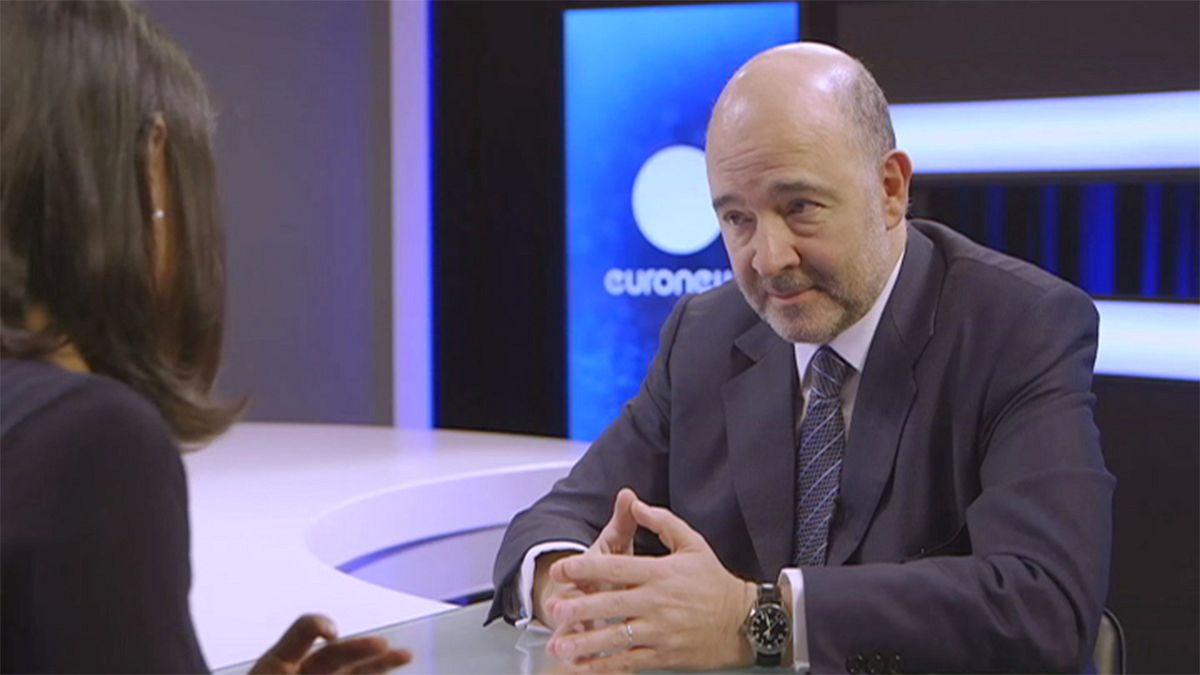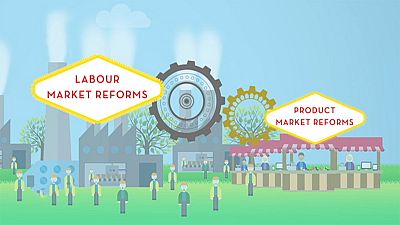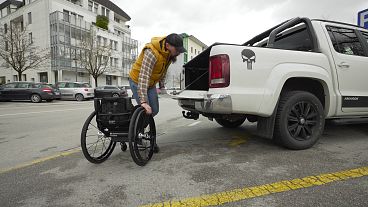Pierre Moscovici, European Commissioner for Economic and Financial Affairs:
“If I look at Germany I would say – the german economy is clearly the leader in Europe and in the Euro area and so Germany shouldn’t be blamed for its successes. External surpluses are huge, growth is a bit above the average trend in the Euro area with a population which is more aging than elsewhere and therefore the need for creating jobs are less, lower. We also see the unemployment rate is the weakest in the Euro area. So Success overall – But still there are challenges. First, there are the global economic challenges – I talked about the external surpluses of Germany – they are huge now, something like 9% and so to me it creates an imbalance that has to be addressed as well by the german government but also in the framework of the euro area. And we know what is the response – the response is clearly investment. The German government is very conscious of that. I speak with Wolfgang Schuable very often about that and already there were 15 billion of pubic investment which were delivered last year. I think 10 for the central government and 5 for the local authorities and those lenders that need that, especially on infrastructures because there is a huge need for infrastructures in the I would say in the former Eastern part of Germany. And then comes the refugee crisis, which is specific need. We know there will be high cost raised by the welcoming of refugees and integration of refugees. My view is that – I am not speaking of emotion which are very important, about the public perceptions, which is of course something that is fundamental – I’m talking about economics, just economics – On the economic point of view – refugee crisis can be an opportunity – if we are ready and capable of integrating those people we need to welcome because they are moving away from regimes that are a threat for their own lives…”
Maithreyi Seetharaman, euronews: “And they are pretty skilled as well, quite a few of these refugees”
PM: “This has to be checked and this has to be I think, worked on…this bright side of the ball. Yes, they probably are skilled but not exactly in our standards. And again, If I look at Germany, there are needs in the labour market and there is also some skills and some capacity which are available there. But we need to have both moving together. And This needs public policies – learning the language, adapting skills to labour needs and this is a very important efforts. It is probably billions of euros which are needed there. So how to get that? The first origin of those funds is national. And we know the german budget will be dedicated partly to that. Again, Wolfgang Schauble declared a few weeks ago he thought there was an effort there which had to be fulfilled. But Germany is also asking its European partners for solidarity. And we must listen to that. I listen to that. Wolfgang Schauble talks about a tax on oil for the refugee crisis – I’m not sure tax, oil and refugees are very popular but I think he – the question is honorable – and we need to examine that. Must there be a tax, on what – can there also be a part I would say, bonds – which are not for the financing of the sovereign debt of a state which is threatened by a … by too high debt – No that’s not the point – but by a common policy for all of us. These debates must take place – we must address them.”



